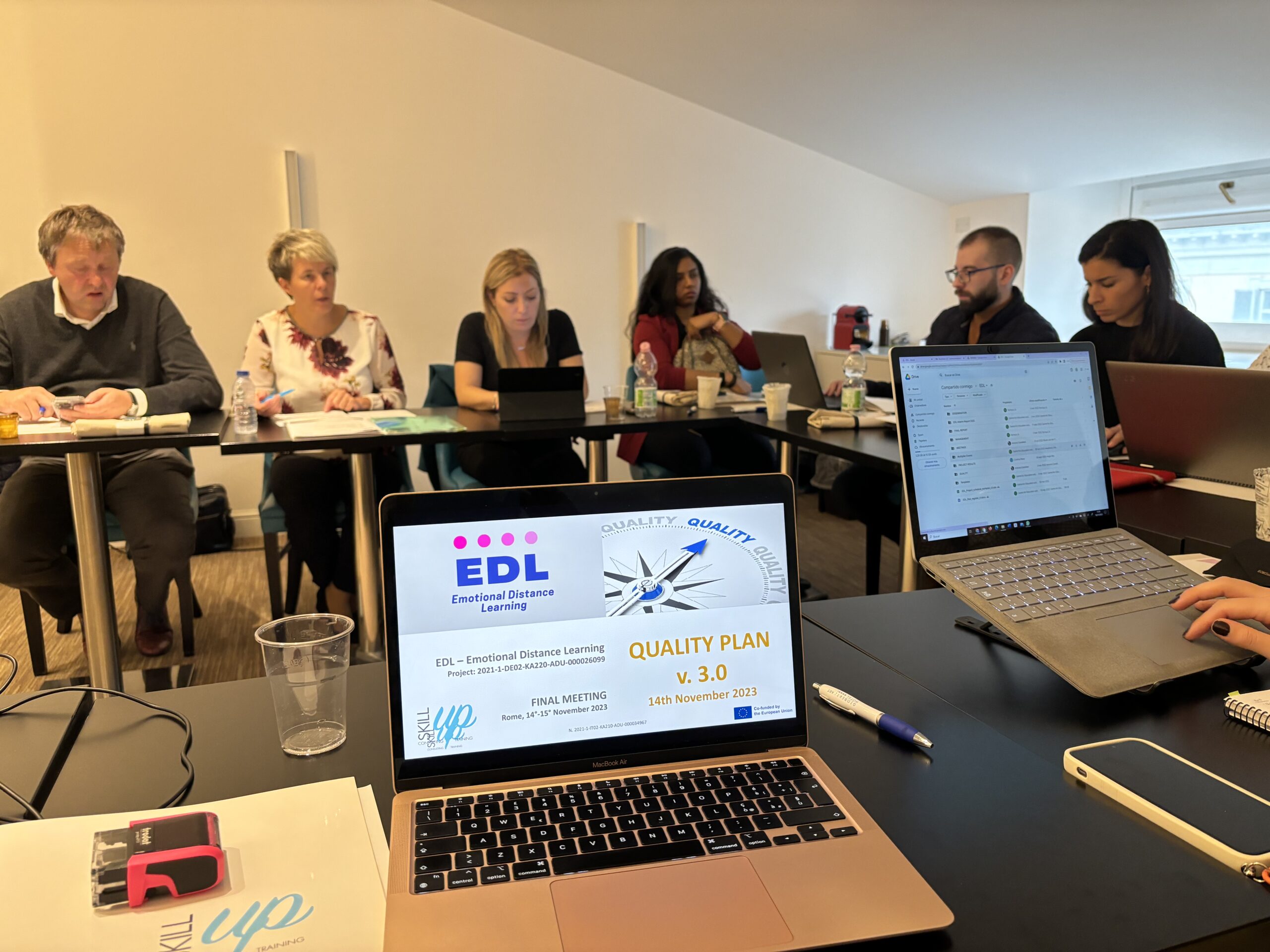By George Stergioulas, Akadimos
Menace: Adaptation of materials and activities to online teaching
In just two years, the adult education sector and the general educational community has experienced a sudden and unexpected swift. When the pandemic outbreak occurred, alongside with its devastating effects, the educational community was caught by an unpleasant surprise. Suddenly, notions that were taken for granted and absolute for learning methodologies and activities had to be changed quickly and immediately. Traditional education could not be applied anymore to the new circumstances and therefore the results of this forced transition were burdensome. The educators of the adult learning sector and the whole educational community had to obligatory abide to the newly established state of affairs and to modify their entire arsenal of educational tools to an unfamiliar reality; the one of online teaching.
Before we proceed, we need to clarify what adaptation in education means. Academic adaptations mean ‘’the teaching and assessment strategies designed to accommodate individual learning needs to enable students to meet the learning outcomes and demonstrate mastery. When planning for student adaptations, adjustments may be made to the way the student will gain access to the learning situation, the way the student will ‘show what he or she knows’, or the way teachers will assess what a student knows’’ (BC Ministry of Education, 2012).
In a short and immediate period of time, educators were forced to revise their whole educational methodologies, alter and adapt their materials and activities to the purposes of online learning. Before the pandemic, educators had the full control over their teaching environment and the development of educational activities and they were able to decide the educational ‘’road’’ that they were willing to follow in order to provide the best possible quality of learning (Graphy, 2022). Moreover, the interactive sequence between educators and the adult learners played a pivotal role to the learning process and as Isha Sood stated, ‘’ in the adult education sector, adults have certain perceptions about the learning process and special needs’’. Interactivity between educators and students, in the earlier stages of the transition to online learning was at a low level. Educators were unable to interact effectively with their learners and also they could not find a proper method of receiving feedback, regarding the quality of their teaching sessions. Similarly, from the perspective of the adult learners, the interactive sequence between them and the trainer was of paramount importance. According Angelaki and Mavroidis ‘’communication with the tutor is important for students, since they often feel the need to contact their tutor in order to guide them in relation to the course material and in order to emotionally support them’’ (2013).
Further than that, the majority of adult trainers experienced difficulties in their effort of abiding their methodologies to online education. Educators who had a certain level of digital competencies managed to acclimate to the new reality in a ‘’lesser painful’’ way. However, trainers whose digital skills were not at sufficient levels in order to respond effectively to this new phase of fully distance education, experienced many dire consequences, as they were not capable of fully utilizing the established digital learning tools, such as the online learning platforms for the flourishing implementation of an online course. The plethora of online teaching tools, which were created for the purposes of the distance education, require specific practice and skills and thus trainers who were not proficient in the field of digital competencies, faced tremendous hardships (Oxford Press Release, 2021).
As a consequence, all these complications had an impact on the psychological and emotional state of the educators. Adult trainers, due to their inability of adapting their educational materials in the online processes, experienced vigorous emotional tensions, sentiments such as stress and anxiety (Kentucky Counseling Center, 2021). Similarly, adult learners, due to the necessity of participating to an unprecedented form of learning, experienced the same negatives sentiments. These consequences only got amplified by the nearly absence of the interactive sequence between educators and learners.
The confrontation of the development of intense emotional charges of adult educators and learners is among the main goals of the EDL project- Emotional Distance Learning, for the purpose of enduring and successfully countering any emotional difficulty. Through the EDL project and through our developed training system, comprised of detailed didactic modules, we aim to successfully develop socioemotional skills for adult trainers, both on intrapersonal and interpersonal level, competencies that will be able to successfully counter the 12 most difficult emotional menaces, which affect the emotional state of adult trainers and learners alike. Regarding the aforementioned menace of adapting the educational activities and materials in online learning, the adult trainer, upon the completion of our didactic module, will be able to:
- Properly recognize and prevent the negative effects of poor interaction between them and their students, during the adaptation of teaching materials and activities to digital learning – on interpersonal level
- Relate to adaptability with confidence and not fear, while teaching online – on intrapersonal level
Adult educators and the educational community in general came across many challenges in their effort of adapting into new educational methodologies and activities, difficulties that caused the participants of the online educational processes to experience numerous emotional difficulties. Through our joint efforts and under the implementation of the EDL project, we will provide the proper socioemotional competencies to adult educators, according to their needs, with the intention of combating the emotional menaces in an adequate and efficient way.
References
Carine Marette. (n.d.) The Challenges of Teaching Online. Kritik. https://www.kritik.io/resources/challenges-of-teaching-online
Christina Angelaki, Ilias Mavroidis. (2013). COMMUNICATION AND SOCIAL PRESENCE: THE IMPACT ON ADULT LEARNERS’ EMOTIONS IN DISTANCE LEARNING. European Journal of Open, Distance and e‐Learning – Vol. 16 / No. 1. https://files.eric.ed.gov/fulltext/EJ1017420.pdf
EPALE Moderator. (December, 2020). Blended learning in adult education: summary of the online discussion. EPALE. https://epale.ec.europa.eu/en/blog/blended-learning-adult-education-summary-online-discussion
GRAPHY. (June, 2022). What is the traditional method of teaching? GRAPHY. https://graphy.com/blog/traditional-method-of-teaching/
Isha Shood. (November, 2018). Interactivity in Adult Learning: What You Need To Know. E LEARNING INDUSTRY: https://elearningindustry.com/interactivity-in-adult-learning-what-need-know
Kentucky Counseling Center. (April, 2021). Mental Health Effects of Online Learning. Kentucky Counseling Center – Counseling and Psychiatry. https://kentuckycounselingcenter.com/mental-health-effects-of-online-learning/
PRESS RELEASE. (October, 2021). NEW REPORT: Lack of skills holds back digital learning, affecting both students and teachers. Oxford University Press. https://www.mynewsdesk.com/uk/oxford-university-press/pressreleases/new-report-lack-of-skills-holds-back-digital-learning-affecting-both-students-and-teachers-3138943



0 Comments